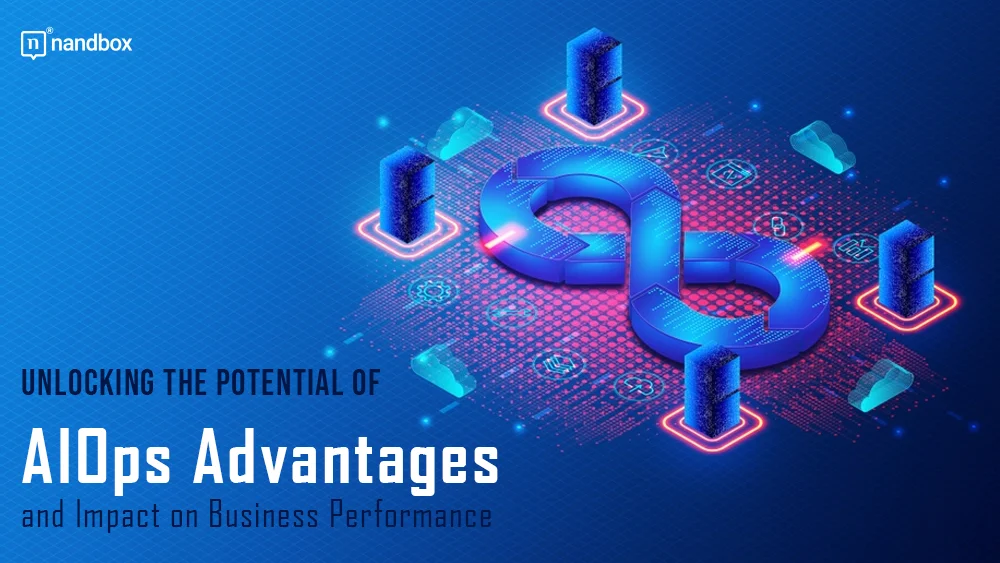With the rapid evolution of IT systems, it is getting quite challenging for companies to manage their complexity. The absence of intelligent monitoring to handle massive data can lead to missed opportunities and system downtime. However, the emergence of big data and machine learning generated a brand-new IT operation tool: AIOps. This operation tool helps companies manage their numerous operations and services effectively, including employees working from home or remote locations. Artificial Intelligence for IT Operations (AIOps) uses AI and machine learning, which allows companies to manage their IT environments through automation. In short, it uses artificial intelligence to manage and improve important IT operations functions. In this article, we’ll give you an AIOps guide, what its role is in enhancing business operations, the functions of AIOps, and its benefits.
What is AIOps? Explore the AIOps guide.
In 2016, Artificial Intelligence for IT Operations was coined by Gartner as a term and an idea. This idea merged two separate technologies—machine learning and big data—into one big practice for improving age-old IT practices. Artificial Intelligence IT Ops utilizes AI to assess large amounts of network traffic and machine learning to detect any inherent patterns. Both technologies help companies identify the root cause of their issue, predict it, and avoid any future occurrences.
Why is there a need for AIOps?
Digital transformation is resulting in companies shifting towards automation. IT leaders are adopting AIOps to improve their business performance. It is because of AIOps that the IT operations team can respond to slowdowns and outages quickly with a lot less effort. AIOps makes life easier for the IT team by taking the responsibility to tackle challenges faced in an IT environment. Other than this, here are the following points that justify why you need AIOps in your business:
1. Encourage Collaboration of IT Teams with Other Departments
AIOps helps the IT team communicate capably with other departments to enhance their applications or services. It automates the process, hence consuming less time to complete the task. In cases where employees are geographically apart, AIOps help facilitate remote collaboration.
2. Enhances Monitoring and Data Analysis Challenges
The use of AIOps in an IT environment helps quickly analyze the sheer volume of growing data produced by IT infrastructures. It examines, handles, gathers, and correlates the data from various multicloud sources. AIOps helps get rid of several monitoring tools that were earlier used by the IT team.
3. Helps Automate IT Processes
It’s a time-consuming task to gather and analyze each and every piece of data while fixing general IT issues. Integrating AIOps into the IT system helps automate the workflow without the need for human intervention.
4. Cut Down Operation Costs
The cost of software, hardware maintenance, electricity, and other operational costs increases the expenditure of IT organizations. AIOps eliminate the requirement for buying and maintaining costly infrastructure. It automates the maximum task, thus reducing hardware, staffing, and other operational costs.
Benefits of AIOps For Your Enterprise
With technological advancement becoming complex, AIOps remove the barrier and ease the management and monitoring of IT infrastructure. Integrating Artificial Intelligence IT operations will provide the following benefits for your business:
1. Ensures Remote Worker’s Productivity
AIOps enables employees to work remotely to maintain their productivity. The BOTs specific to WFH increase productivity and availability, boost user experience, and eliminate human error.
2. Helps Save Time
AIOps helps automate the entire IT-related tasks, thus helping the company save precious time. It automates tasks such as event correlation, alert analysis, detecting errors in IT systems, etc. When IT teams are free from manual tasks, they are able to focus more on important tasks at hand.
3. Smooth Data Processing
Processing a large volume of data takes time and is quite difficult to do by hand. This is where AIOps plays a vital role. It allows the company to perform correlation of data in real-time. AIOps is capable of processing any type and amount of data at a greater speed, thus saving time, resources, and effort.
4. Reduces System Downtime
As per the 2022 data, the average cost of system downtime is around $5,600 per minute. So, you can imagine how much a business will lose if and when they experience system and application downtime. AIOps are beneficial in detecting and reacting earlier to any emerging problems with the software before they turn into massive failures.
5. Helps Minimize Security Risks
AIOps helps the IT ops team detect, analyze, and solve any issue at a faster pace. The tool diagnoses the root cause of the problem, thus reducing any false alarms. It can be integrated with other tools to extract and examine real-time data and security risks.
6. Enhances the Customer Experience
One of the crucial aspects of all companies is customer acquisition and retention. No business can flourish without its customers. Therefore, it has become essential for companies to use AI in IT operations to optimize the customer experience. AIOps can recognize the challenges faced by customers and provide appropriate solutions to their queries.
Conclusion
After reading the AIOps guide, you can deduce that artificially intelligent IT operations are not a substitute for existing IT operations teams. In fact, it is a way to upgrade the IT team’s capability and streamline the business process and workflows. But to get a good grasp on AIOps, companies need to get themselves familiar with artificial intelligence and machine learning. Businesses must understand the concepts and learn the practical ways that will help build their organization. The AIOps capability is often underrated by companies, as they think of it as something that will help only the IT operations team. However, they fail to understand that AIOps don’t only help in the technical process but positively impact business efficiency. When properly integrated, the AIOps platform reduces operational noise, minimizes downtime, helps avoid issues, and much more. In other words, it elevates the visibility and importance of IT to the company.






